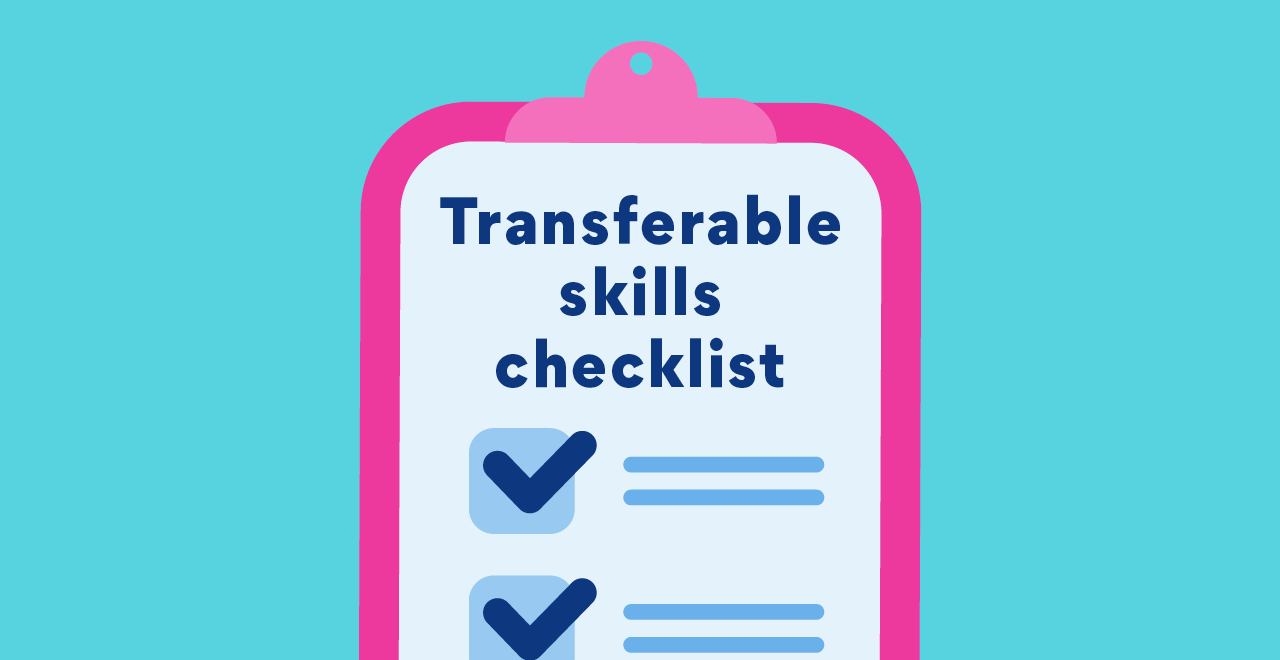Transferable skills checklist
Employers see a lot of value in transferable skills. And the good news is, you’ve likely got quite a few of these skills – so it’s worth making the most of them when you apply for a role.
So, what are transferable skills, exactly?
Transferable skills are a core set of skills and abilities that go beyond a particular job or organisation – you can use them in almost any role. Great people skills, for example, will be valuable to your work whether you’re a customer service representative or a carpenter, a senior executive or an intern.
Transferable skills can help you stand out to employers in your job search or even make a career change – so knowing just what yours are can help you take that next step.
We’ve developed this checklist to help you identify your transferable skills and paint a clearer picture of all the abilities you can offer.
Read through the checklist below or download it here to get your own copy to work through.
Organisational and execution skills
These are the skills that help you to plan, prepare, and get things done in the workplace, so putting them to use in your role is valuable to employers. Here are some examples of what these skills involve:
- Time management: managing your own time to get the job done. This is especially useful in fast-paced work environments.
- Research and analytics: researching and collecting data,analysing, reporting on your findings and making recommendations.
- Administration and clerical: efficiently handling tasks like filing, paperwork and communications including phone or email, plus managing calendars and appointments.
- Financial management: developing and managing budgets, keeping financial records, fundraising or project managing.
- Sales and marketing: marketing and selling a product or service, or influencing behaviour.
- Creative thinking: generating new ideas and coming up with innovative solutions to problems.
- Planning: managing yourself, others and available resources with a goal in mind, and creating plans for projects or events.
- Technology or digital literacy: being able to use and quickly adapt to new technology, programs or tools.
Communication skills
Workplaces rely on communication for things to run smoothly, so skills you have here will be a benefit to them. These skills can be used when communicating within your team or company, as well as externally – for example, to customers.
- Listening: not only taking on what’s communicated to you but also interpreting and understanding it.
- Writing: this isn’t necessarily creative writing; it’s any kind of interaction that involves the written word, such as reports, emails, letters, sales materials and articles.
- Face-to-face: communicating in person, including facilitating meetings, interviewing, persuading, negotiating, expressing ideas plus speaking in public or to groups.
People skills
These are the skills that help you interact and get along with others – including co-workers, customers and clients. People skills are really valuable to organisations especially as they place growing importance on team culture and performance. Here are just a few examples.
- Co-operation: being able to collaborate, work well with others and effectively contribute to projects or tasks.
- Empathy: putting yourself in someone else’s shoes to try and understand or relate to them.
- Patience: the ability to handle trying situations, repeat processes when necessary, take time to make thoughtful decisions, accept delays or persevere.
- Flexibility: willingness to adapt to a new situation or change approach when needed.
Leadership skills
Effective leaders can motivate their team and make decisions, which are things almost any successful business needs.
- Prioritisation and delegation: being able to step back from the coalface and decide what needs to be done first, and determining which jobs are necessary and who can best handle them.
- Critical thinking and problem solving: looking at problems, analysing them and coming up with solutions.
- Coaching, mentoring and feedback: supporting and encouraging people to achieve goals, helping them work through roadblocks, plus providing feedback and information on performance.
This isn’t a complete list of all the transferable skills out there – you may be able to come up with more that apply to you.
Identifying these skills and using them as selling points in your applications and online profiles will help you to stand out. List these transferable skills throughout your career history in your resume and make mention of them in your cover letter.
It’s also important to think of how you can show examples of specific ways you’ve used these transferable skills so you can talk about them to potential employers – for example, in an interview setting. Our Practice Interview Builder can help you prepare responses to common interview questions and boost your confidence.

